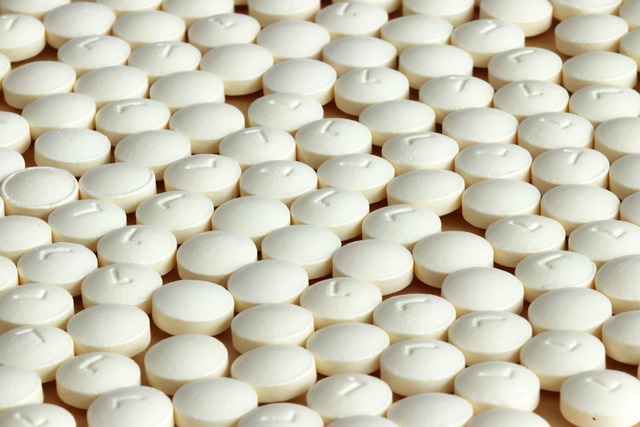Postoperative care today is centered around comprehensive patient recovery, emphasizing personalized and advanced treatments facilitated by healthcare professionals. The recovery phase is managed with precise monitoring of vital signs and healing progress through cutting-edge medical technology, which enables prompt responses to complications. Innovations in regenerative medicine, such as stem cell therapy and tissue engineering, are key drivers in accelerating recovery, minimizing invasiveness, and reducing scarring, leading to shorter hospital stays, fewer complications, and a quicker return to normal life or better health post-surgery. The integration of these regenerative treatments with advanced monitoring technologies like real-time biometric tracking and telehealth services ensures continuous and precise assessment, significantly improving patient outcomes and satisfaction. This collaborative multidisciplinary approach involves a team of physical therapists, nurses, and surgeons creating personalized rehabilitation plans that prioritize restoring function and mobility after surgery. The latest advancements in medical treatments, including AI-driven interventions, further enhance postoperative care by optimizing healing processes and tailoring treatment to individual patient responses. This synergy between innovative technologies and traditional medical practices heralds a transformative era in postoperative care, promising faster recovery times through technological innovation and precise medical interventions. The focus is on patient-centric strategies that optimize monitoring and support regeneration with the aim of reducing readmission risks and improving overall treatment outcomes.
Postoperative care represents a pivotal phase in the healing journey of patients. This article delves into the critical aspects of professional post-op monitoring and regenerative support, shedding light on their integration within contemporary treatment protocols. We explore the multifaceted role of healthcare professionals in ensuring patient recovery, the strides made in regenerative medicine that offer new avenues for post-operative care, and the impact of a multidisciplinary approach to rehabilitation. Additionally, we examine the latest medical technology innovations that significantly enhance postoperative outcomes. Each section underscores the importance of patient-centric strategies aimed at optimizing recovery and support in the treatment continuum, emphasizing the advancements in medicine that are shaping the future of post-surgical care.
- Understanding Postoperative Care: The Role of Professional Monitoring in Recovery
- Advancements in Regenerative Medicine: A New Frontier in Post-Op Treatment
- The Multidisciplinary Approach to Post-Operative Rehabilitation and Recovery
- Innovations in Medical Technology Enhancing Postoperative Outcomes
- Patient-Centric Strategies for Effective Post-Operative Monitoring and Regenerative Support
Understanding Postoperative Care: The Role of Professional Monitoring in Recovery

Postoperative care is a critical phase in the recovery process, where professional monitoring plays an indispensable role. This phase encompasses the vigilant observation and management of a patient’s healing trajectory following surgery. Medical professionals employ a suite of diagnostic tools and treatments to ensure that any complications are identified and addressed promptly. The careful tracking of vital signs, pain levels, and medication administration are integral components of this care, allowing for timely interventions should the need arise.
The transition from acute to postoperative care requires a seamless approach where healthcare providers must be adept at both surgical and recuperative medicine. During this period, patients often receive a combination of treatments tailored to their specific needs, which may include physical therapy or the administration of regenerative medicines designed to support tissue repair and reduce recovery time. These interventions are crucial for optimizing outcomes and facilitating a smooth return to health and daily activities.
Advancements in Regenerative Medicine: A New Frontier in Post-Op Treatment

The field of regenerative medicine represents a significant leap forward in post-operative care, offering novel treatments that harness the body’s intrinsic healing capabilities. Advancements in this domain, particularly in stem cell therapies and tissue engineering, have paved the way for more efficacious and less invasive interventions following surgery. These treatments not only accelerate the healing process but also improve the quality of recovery by minimizing scar tissue formation and promoting functional tissue regeneration. As a result, patients often experience reduced hospital stays, lower risk of complications, and swifter restoration to their pre-operative state or better.
In parallel with these clinical advancements, the integration of advanced monitoring technologies has become pivotal in post-operative care. Real-time biometric tracking combined with telehealth services allows for continuous assessment of a patient’s condition, enabling timely medical interventions when necessary. This proactive approach to post-op monitoring ensures that any adverse reactions to surgery or treatments can be addressed swiftly, enhancing overall patient outcomes and satisfaction. The synergy between cutting-edge regenerative therapies and precision monitoring represents a new frontier in post-operative treatment, promising a future where recovery is not only faster but also more complete.
The Multidisciplinary Approach to Post-Operative Rehabilitation and Recovery

Post-operative rehabilitation and recovery represent a critical phase in the patient’s journey to health. A multidisciplinary approach to post-operative care is pivotal, as it enlists the expertise of various medical professionals to address the diverse needs of patients following surgery. Physical therapists collaborate with nurses and surgeons to design tailored treatment plans that optimize patient outcomes. These treatments aim to restore function and mobility, often employing advanced technologies and rehabilitation techniques to facilitate healing and improve quality of life.
Incorporating regenerative medicine into post-operative care further enhances the recovery process. Regenerative therapies, including stem cell treatments and platelet-rich plasma injections, are increasingly being used to support the body’s natural healing processes. These innovative treatments are carefully integrated into a patient’s rehabilitation program by medical professionals who are adept at leveraging the latest advancements in medicine to achieve the best possible results for their patients. The multidisciplinary team works cohesively, ensuring that each aspect of the patient’s care is considered and addressed, from pain management to the gradual restoration of pre-operative functional abilities.
Innovations in Medical Technology Enhancing Postoperative Outcomes

In recent years, the field of medicine has witnessed significant advancements in medical technology that have revolutionized postoperative care and treatment outcomes. Innovations such as wearable sensors and advanced monitoring systems enable healthcare providers to track patient vitals in real-time, ensuring immediate detection and response to any irregularities that may arise following surgery. This proactive approach not only enhances patient safety but also reduces the likelihood of complications, leading to improved recovery times and overall patient satisfaction. Furthermore, the integration of artificial intelligence (AI) algorithms within these systems allows for personalized treatment protocols, adapting to each patient’s unique physiological responses post-surgery. The application of regenerative medicine, including stem cell therapy and tissue engineering, has also emerged as a pivotal treatment modality. These therapies aim to restore the damaged tissues to their functional state more efficiently than ever before, ultimately contributing to faster recovery and better long-term outcomes for patients undergoing complex surgical procedures. The confluence of these technologies with the traditional medical practices represents a leap forward in the realm of postoperative care, promising a future where recovery is not just a matter of time but also of technological precision and innovation in medicine.
Patient-Centric Strategies for Effective Post-Operative Monitoring and Regenerative Support

In the post-operative phase, patient-centric strategies play a pivotal role in ensuring effective monitoring and regenerative support. Advanced treatment modalities often incorporate personalized medicine approaches, which allow for tailored interventions based on individual patient needs and responses. Continuous monitoring post-surgery leverages cutting-edge medical technology to track vital signs, biochemical markers, and the healing progress, enabling healthcare providers to respond promptly to any anomalies or complications. This proactive approach not only enhances patient outcomes but also reduces the likelihood of readmission by providing timely and targeted support for regeneration, thereby facilitating a smoother recovery process.
Moreover, the integration of regenerative therapies, such as stem cell treatments and growth factor applications, into post-operative care is an emerging field that holds significant promise for accelerating tissue repair and restoring function. These innovative medical treatments are designed to support the body’s innate healing capabilities, leading to improved clinical outcomes. By monitoring patient responses to these therapies in real-time, healthcare professionals can fine-tune treatment protocols for optimal results, ensuring that each patient receives the most effective care pathway tailored to their unique circumstances. This synergy between advanced monitoring systems and regenerative medicine represents a significant advancement in post-operative treatment paradigms.
In conclusion, the evolution of professional post-operative monitoring and regenerative support represents a significant stride in advancing patient outcomes. The multidisciplinary approach to recovery, coupled with cutting-edge medical technology, ensures that each patient receives tailored treatment and care, underscored by the latest advancements in medicine. As we continue to integrate these innovative strategies into postoperative protocols, patients can anticipate a more efficient and effective return to health. The future of post-operative care is promising, with ongoing research and development poised to further enhance patient recovery and well-being.
